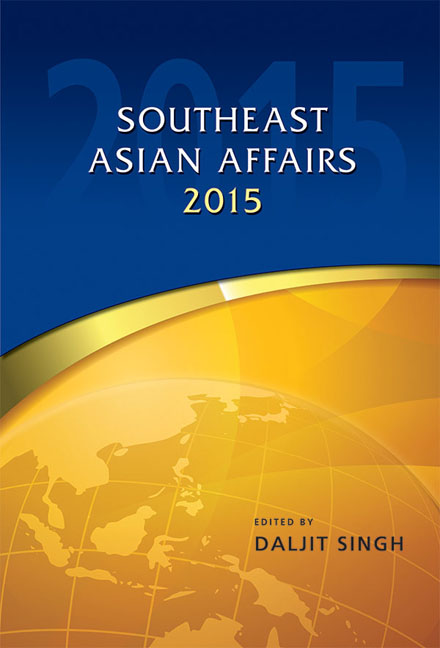Foreword
Published online by Cambridge University Press: 19 May 2017
Summary
It is my pleasure to present the forty-second edition of Southeast Asian Affairs. This annual review is an important source of information and analysis for all those interested in developments in Southeast Asia.
The year 2014 was a challenging one for Southeast Asia. Economic growth was lower than what many had expected at the beginning of the year. This was due to the sluggish economic recovery in the advanced industrial economies, a slowdown in China, and decline in domestic private consumption and investment in key Southeast Asian economies.
On the political front, there was more uncertainty in Thailand, following a military coup during the year. In Malaysia, the government of Prime Minister Najib Razak continued to face severe domestic challenges. In Indonesia, the election of a new president from outside the traditional elites posed questions about what his domestic and foreign policies would be like. The Islamic State of Syria and Iraq (ISIS) was a matter of growing concern, especially to Indonesia and Malaysia, as it attracted recruits from the region for the jihadi cause. Major power competition in the region was more palpable, posing a challenge to ASEAN and its centrality. Tensions in the South China Sea still remained by and large contained but China's huge reclamation projects were causing concerns in Southeast Asia and beyond.
I would like to thank the authors and the editor as well as others who have helped to make this publication possible. The chapters in the volume contain a wide variety of views and perspectives. They do not necessarily reflect the views of the Institute. The authors alone are responsible for the facts and opinions presented in their contributions.
- Type
- Chapter
- Information
- Southeast Asian Affairs 2015 , pp. vii - viiiPublisher: ISEAS–Yusof Ishak InstitutePrint publication year: 2015



